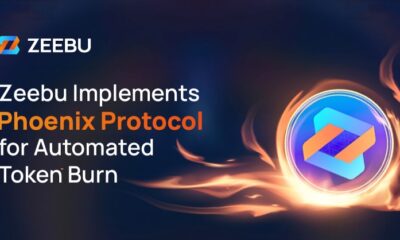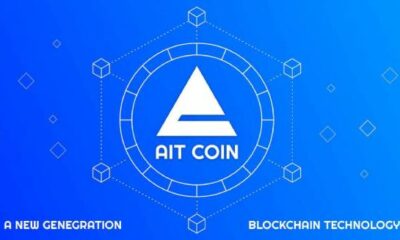Blockchain has emerged as a highly leveraging technology leaving a great impact in the new digital economy. With the promising use-cases, the technology still thrives on flourishing for maximum optimization and effective business transformation. Governing the major implications, the industry experts expect that the investment in blockchain will grow significantly. According to Markets and Markets, the global size of the blockchain market is predicted to rise from 3 billion USD in 2020 to 39.7 billion USD by 2025, with a CAGR of about 67.3%.
While developing blockchain-powered solutions and apps, it is not easy to estimate the return on investment (ROI) of blockchain development. However, estimation assumes a different dimension of importance in the case of blockchain implementation. For ensuring effective blockchain development, businesses must share their findings optimally among the team.
It would be inappropriate to know the actual cost of blockchain implementation due to their diverse implications across different industries like healthcare, finance, insurance, agriculture, retail, etc. Let us walk you through the factors that can have a tremendous impact on the overall cost. These factors help determine the project’s budget and give a quick estimate regarding the overall development cost.
1. Process
The cost of developing a blockchain-based solution depends upon numerous factors like many functionalities, implementation complexity, types of platforms and technology stack. The following development phases involved in the process directly influence the blockchain development strategy and the overall implementation cost.
This phase incurs the cost for system blueprint, user interface design consisting of wireframes, high-fidelity and low-fidelity designs with a prototype and app flow.
The cost-incurring traits in the development phase include coding and application testing.
It refers to deploying the application on delivery models or cloud platforms.
It refers to the moving of existing solutions to the blockchain platforms.
It refers to the maintenance cost for the new up-gradation and updation and testing of the application to ensure smooth functioning.
- Third-party tool integration
The cost may rely on integrating the following third-party tools for hosting, storing, notifying, and collaborating services such as :
Amazon Web service: This tool is essential for cloud computing, storage, and delivery services. The cost may vary between $100 to $1000, depending upon the number of users.
Bug tracking tools: These tools assist in reporting and removing live bugs. Their cost can fluctuate from 10 to 100 $.
Monitoring service: Applications like uptime robots help to send real-time notifications for downtime, whose cost varies from $10 to $50.
Notification services: The notification service tools like Kumulos, Twilio, Amazon SNS will cost about $10 to $50.
Analytics with mixpanel: This tool conducts application data analysis, funnel reporting, insight generation, which incurs the cost of around $10 to $ 150.
2. Complexity
The cost of blockchain implementation depends upon the complexity of the project or application. Numerous factors like t define the complexity of a project, the purpose, problems associated with the end-users, the need for the existing solutions to the problems and the requirement to invest in blockchain development.
Based on the application complexity, the cost for blockchain app development can be categorized as:
These include payment apps, smart contract development apps, which cost between $15000 to $ 40000.
The distributed applications (DApps) with average complexity incurs the cost between $ 30000 to $90000.
The enterprise blockchain application from scratch or complete decentralized network for a sophisticated project will cost above $130000.
3. Development Resources
Blockchain project implementation involves an ample amount of effort and time to execute the algorithms effectively. While approximating the budget of blockchain-based applications, it is essential to consider the following development resources.
- In-house app development group for building blockchain solutions, estimating the cost around ($500,00 to $2000,000).
- Hiring service providers like freelancers would incur expenses between $30,000 to 90,000.
- Hiring blockchain app development companies or agencies for supervising the application’s progress, whose cost estimation varies between $150,000 to $500,000.
Working with an in-house team is very expensive, but it offers effective tracking of blockchain app development. On the contrary, if you are outsourcing the project or hiring offshore developers, it could be the least expensive measure but could involve risks.
It is always preferable to go with a software development company possessing in-depth knowledge about the languages, app development contexts, tools, and other prerequisites required for successful implementation. You may also opt to hire freelancers if blockchain app development seems risk-free because the risk factors increase with the project’s scope over time.


 Entertainment4 weeks ago
Entertainment4 weeks ago
 Entertainment4 weeks ago
Entertainment4 weeks ago
 Entertainment4 weeks ago
Entertainment4 weeks ago
 Entertainment4 weeks ago
Entertainment4 weeks ago
 Entertainment3 weeks ago
Entertainment3 weeks ago
 Entertainment4 weeks ago
Entertainment4 weeks ago
 Entertainment2 weeks ago
Entertainment2 weeks ago
 Entertainment4 weeks ago
Entertainment4 weeks ago












